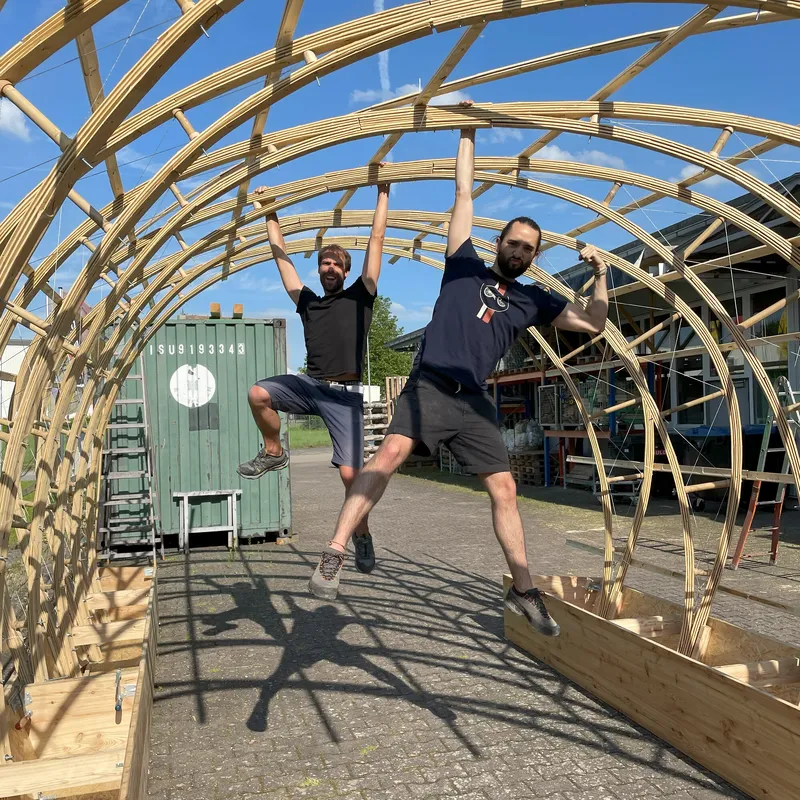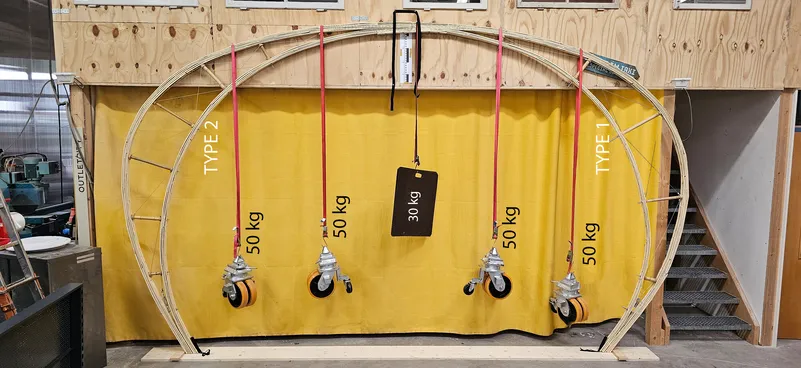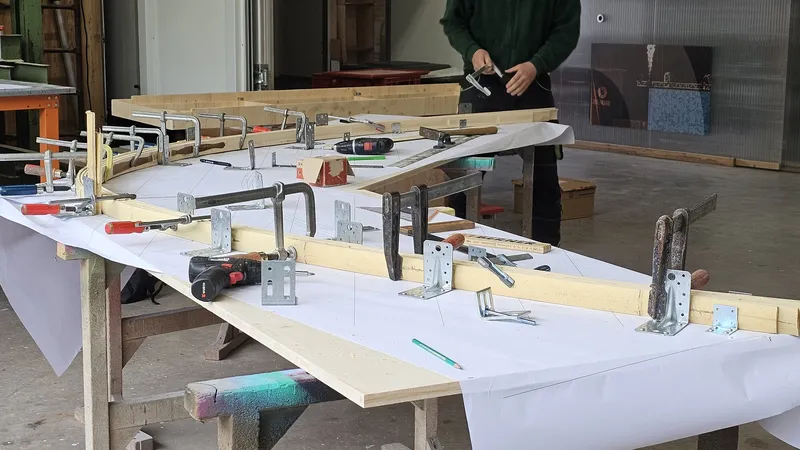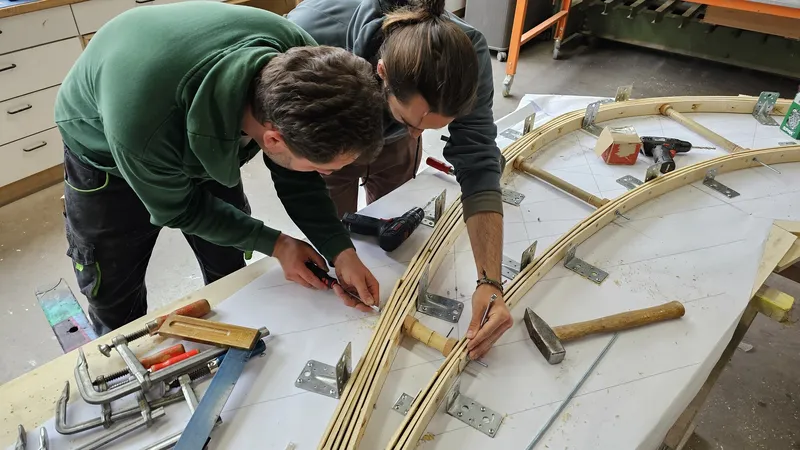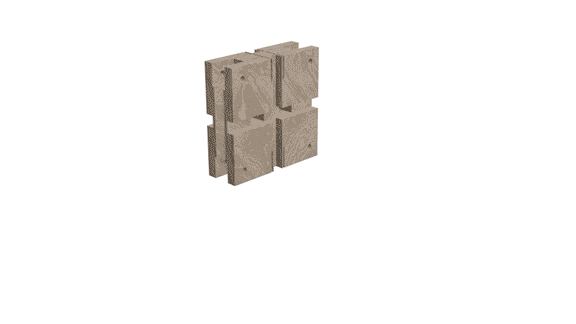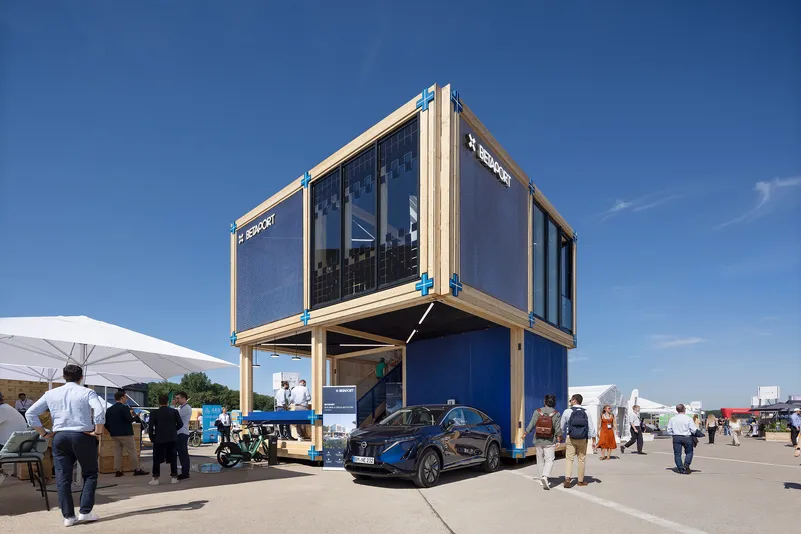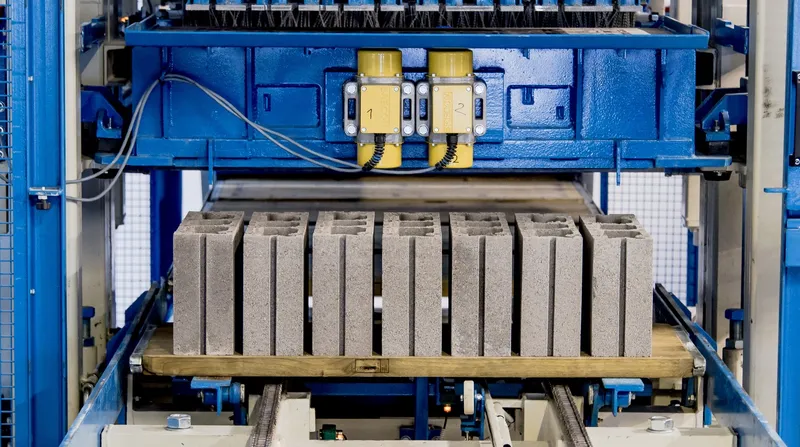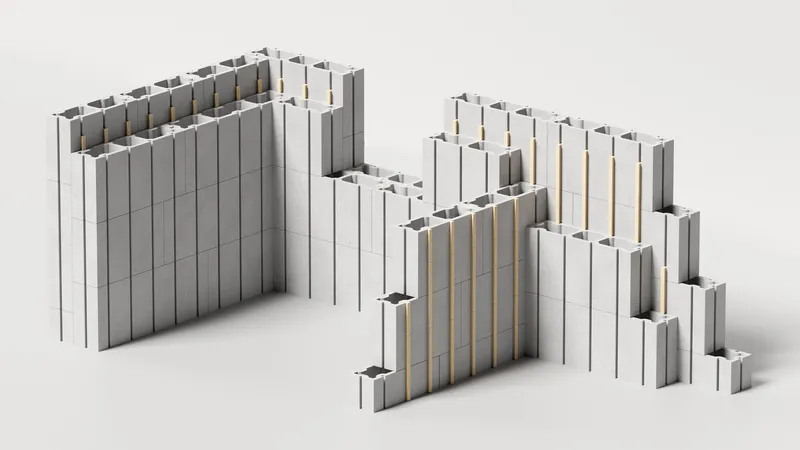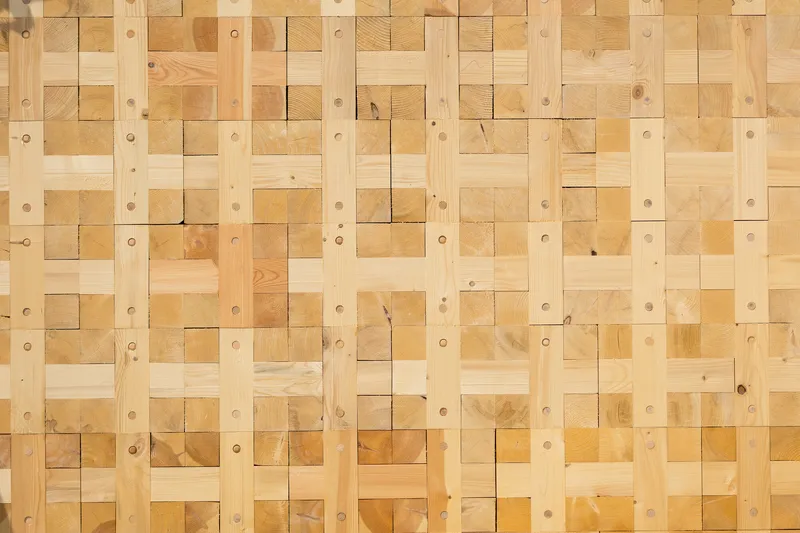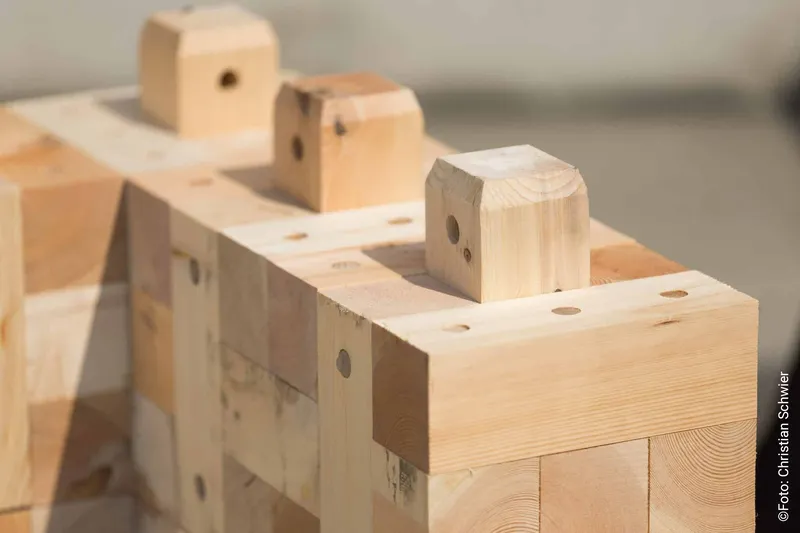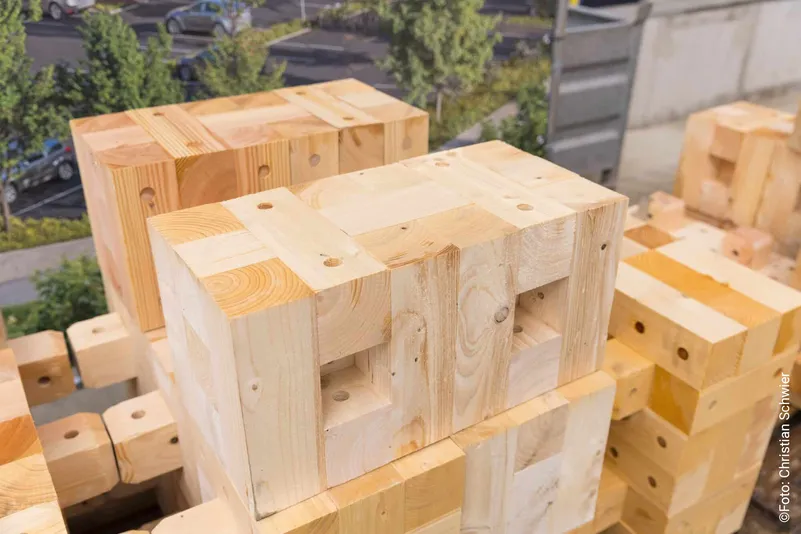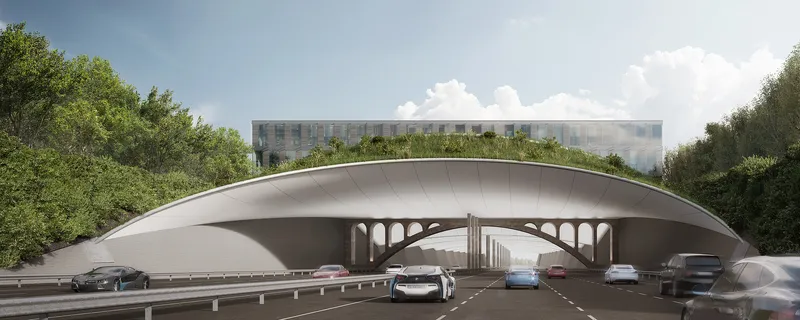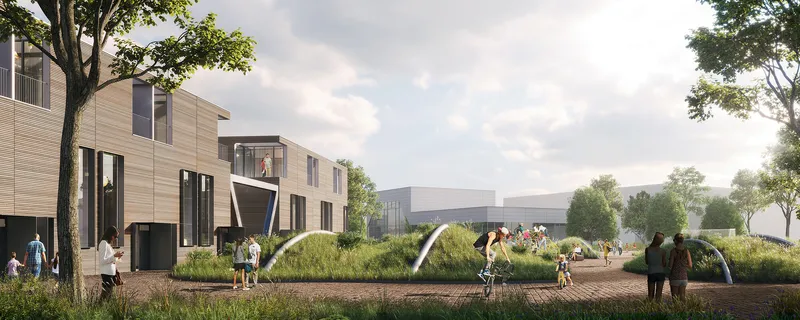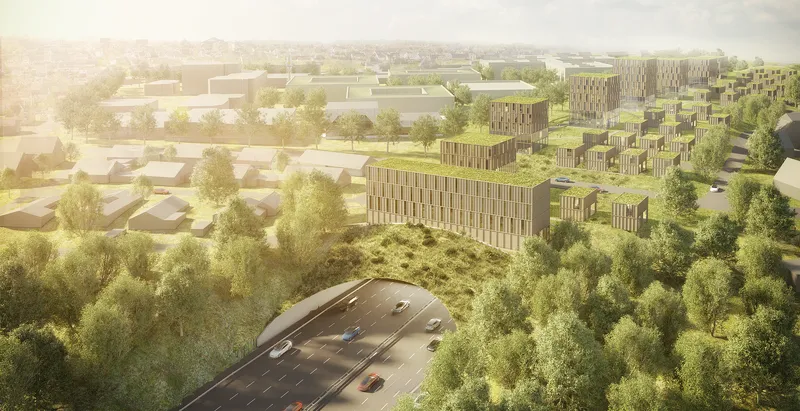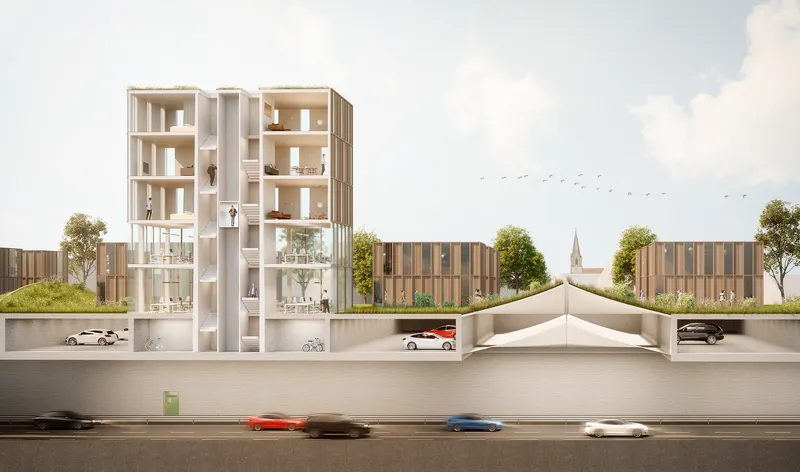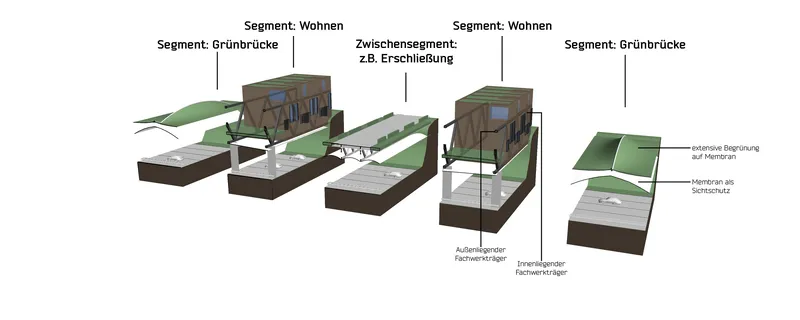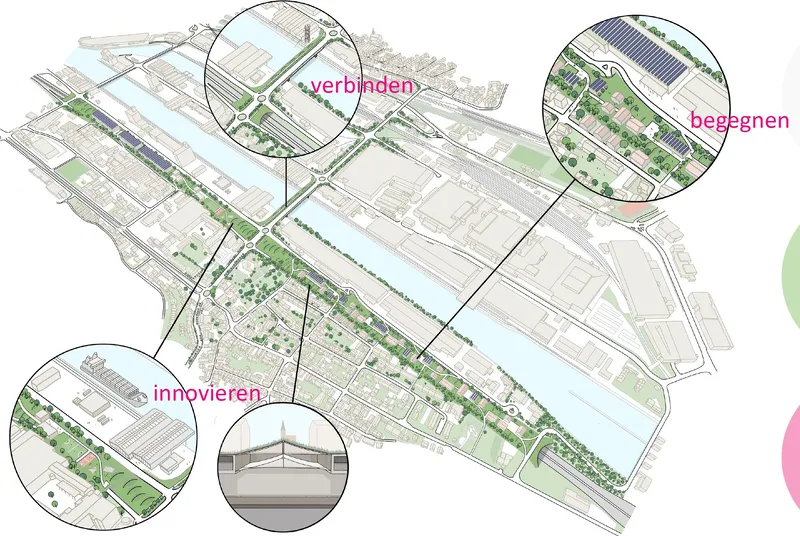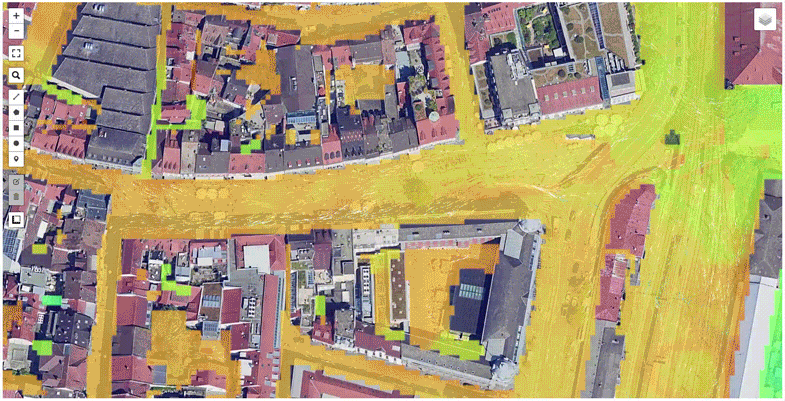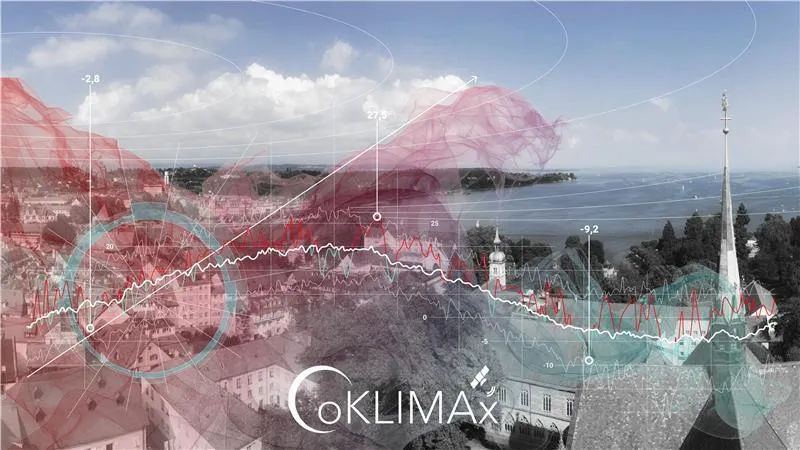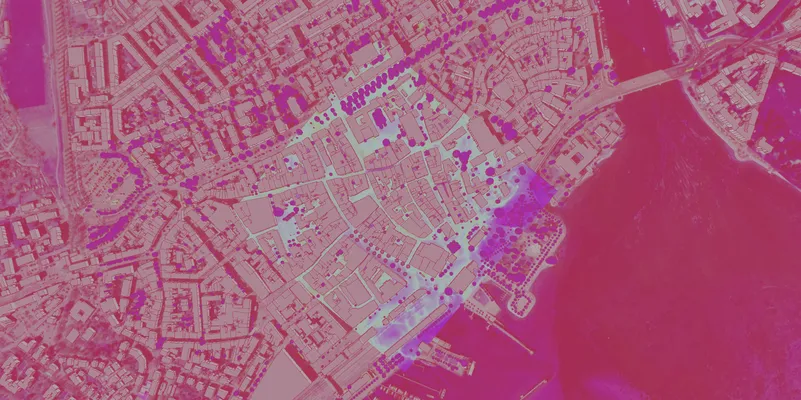
Experimental Research
We are dedicated to fostering a spirit of experimentation and research.
For us, research is a dynamic process that is immediately put into practice. Through the targeted, experimental application of new technologies, close collaboration with innovative start-ups, and active participation in national and international research programs, we develop pioneering solutions for the construction industry. Our goal is to break new ground, bring visionary concepts to market readiness, and continuously advance sustainable construction methods in partnership with others.
Modular construction – redefining efficiency, flexibility and sustainability
In modular construction, we actively participate in research and development projects with industry partners to advance sustainable building practices. We collaborate with Urban Beta to support the BetaPort System – a recyclable modular construction system made from digitally prefabricated timber-hybrid components. Our role includes structural design and the development of modular connection elements that enable simple, material-efficient installation and disassembly.
Your innovative partner and catalyst for start-ups in construction
We support start-ups in the construction industry as strategic partners in developing and implementing innovative construction concepts. With our experience and network, we help bring new ideas to market readiness. Examples include TRIQBRIQ , with its modular timber construction system that uses small-dimensioned wood and wood offcuts to create climate-friendly building envelopes (Source EDEKA Minden-Hannover/Christian Schwier); Polycare, offering cement-free, recyclable geopolymer concrete that promotes a true circular economy; and Strong by Form, which has developed Woodflow®, a bio-based, high-performance composite for resource-efficient construction.
Simulations to evaluate climate resilience measures
Given the accelerating impacts of climate change, climate-resilient planning for buildings and infrastructure is becoming increasingly vital. Using state-of-the-art simulation methods – including flow, urban climate, and microclimate analyses – we evaluate the effects of planning decisions on the urban microclimate. Supported by artificial intelligence, these data-driven methods enable in-depth analysis of large datasets, allowing us to optimize façades and load-bearing structures. The result is efficient, future-proof, and environmentally friendly building concepts that can withstand even extreme climatic conditions.
